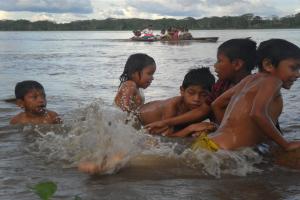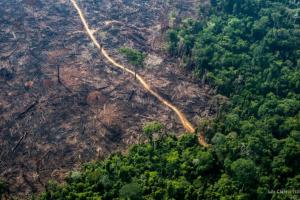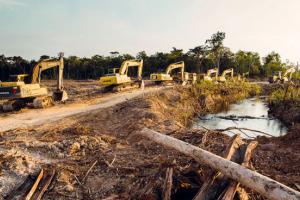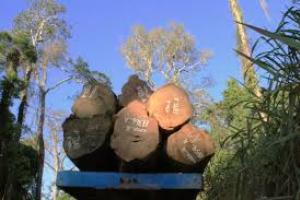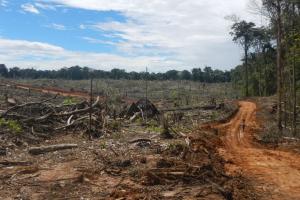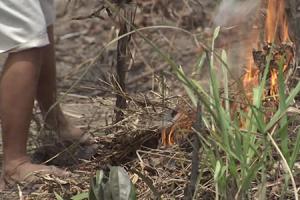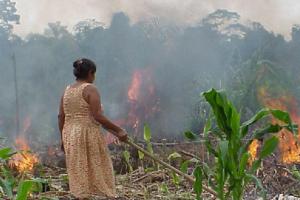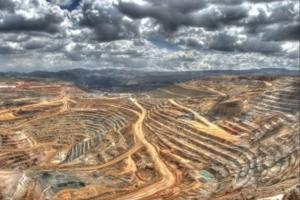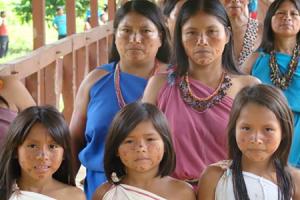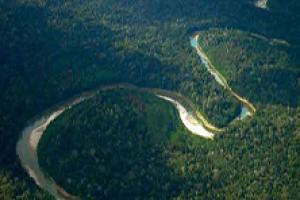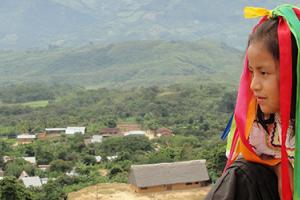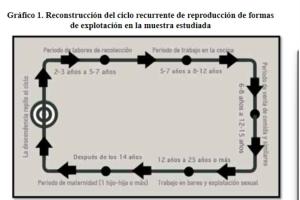The Waterway aims to connect the Amazon to the world. But that argument is based on the idea that we are disconnected in the Amazon. That is not true. What it really wants to do is place the Amazon in service of capital, razing peoples.
Peru
Other information
15 July 2019
The study, “Amazonía en la encrucijada” (“The Amazon at the Crossroads”), by the Amazon Geo-Referenced Socio-Environmental Information Network (RAISG, by its Portuguese acronym) presents an overview of the pressure caused by roads in Brazil, Bolivia, Colombia, Ecuador, Perú and Venezuela. According to the report, of the 136,000 kilometers of roads mapped in the region, at least 26,000 are in protected natural areas and indigenous territories. For example, in the Brazilian Amazon, the report states that most deforestation occurs in the vicinity of roads.
Other information
14 May 2019
A short documentary by Oxfam Peru shows the serious environmental and social problems that come with the expansion of monoculture tree plantations in the Peruvian Amazon. Thousands of hectares have been deforested—mainly with the cultivation of oil palm—which, in addition to affecting forests and streams, affect several native communities.
Other information
22 December 2018
A team of journalists from five Latin American countries investigated how groups of timber traffickers manage to steal and process timber from the Amazon. An article from the newsportal Mongabay exposes how illegally-sourced timber from Peru, Bolivia, Brazil, Ecuador, and Colombia are incorporated into the international market with falsified official documents that are almost never verified.
Bulletin articles
26 September 2018
Communities affected by oil palm plantations organized a Forum in the city of Yurimaguas to denounce and expose the social and environmental impacts of these plantations.
Bulletin articles
9 July 2018
Forest peoples’ knowledge and practices of the use and management of controlled fire in forests have been identified within climate change policies as the cause of forest fires. Nevertheless, fire is critical for ensuring the food and cultural sovereignty of forest peoples.
Bulletin articles
9 July 2018
Fires in the Amazon are occurring more frequently and with greater intensity. But who is really burning the forests?
Other information
29 April 2018
Where does all the gold processed in Switzerland come from?
Bulletin articles
7 July 2017
How to make the sustainability of life the center of debate
Bulletin articles
7 July 2017
In support of indigenous organizations in Peru, the Indigenous Missionary Council of Brazil (CIMI) expresses great concern for and stands in defense of the lives of indigenous peoples in voluntary isolation, who live on the border of Brazil (Acre) and Peru (Madre de Dios). These peoples are currently threatened by the project to build a highway on the Peruvian side, which would connect Puerto Esperanza with Iñapari.
Bulletin articles
30 August 2016
Modern people usually refer to medicinal plants as resources at the service of humans. This way of referring to them does not seem to be universal. The Quechua-lamas of the Amazon foothills regard plants as people, even more, they treat them as if they were a living community.
Other information
16 September 2015
An investigation focused on the river port of Pucallpa, Ucayali, in the Peruvian Amazon, reveals that women serving in the bars around the harbor and those dedicated to the work in logging camp kitchens (legal and illegal) have been continuously sexually exploited, and many of them are also victims of sex trafficking.
